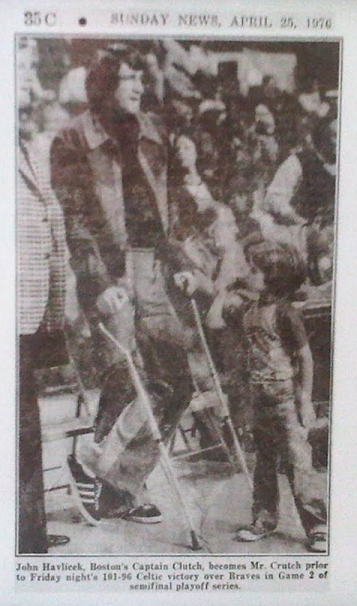In a glorious display of fiery-hot shooting, the Indiana Pacers scored 54 points in the third quarter of their victory over the Nuggets on Tuesday night. In one dizzying stretch, the Pacers had consecutive possessions where Mike Dunleavy
- Was fouled on three-pointer and made 2/3 free throws
- Made a 27-foot three point jumper
- Made a 26-foot three point jumper
- Was fouled on three-pointer and made all three free throws
- Made a 27-foot three point jumper
and he finished the quarter with 24 points. In case you were wondering (and really, if you follow the NBA, you really shouldn't have to wonder), J.R. Smith was the defender on those five plays. Well done, J.R., well done.
54 points sounds like an awful lot for one quarter. But they broke no records for points in a quarter, and not just because Josh McRoberts chose to break out his ugly jumper in the final seconds of the quarter to turn 20/20 FG shooting into 20/21. The actual record for points in a quarter is held by ... the Buffalo Braves. On October 20, 1972, in a game with the Celtics, the Braves scored 58 in the final 12 minutes. And lost. Let me say that again: they outscored the opposition 58-23 in the fourth quarter and lost. Here's a clip of the New York Times boxscore for the game (which was positioned just to the right of a feature article on an old, odd variation of tennis: court tennis.)
 |
| Fun little boxscore, eh? Did Don Nelson shoot 2-2 or 2-17. Who knows? |
The late Randy Smith, who passed away not too long ago, scored 23 of his 29 points in the final frame. And keep in mind that unlike the Pacers, the Braves managed to put up 58 points without the benefit of the three-point shot!
The Braves, who came into the league in 1970 along with Portland and Cleveland, came to my attention a second time this week when Bill Simmons posted this pic to his Twitter account of him as a youngster, eyeballing John Havlicek on crutches during the 1976
playoff series between Boston and Buffalo. After defeating Philadelphia in the first round, they split the first four games with Boston before losing in 6 games to the eventual champs. Following that defeat, things went sourly for the franchise. Coach Jack
Ramsay would leave for Portland and McAdoo would leave halfway through the following season. Attendance suffered and David Stern (then an NBA lawyer) mediated a deal where Braves owner John Y. Brown swapped franchises with Irv Levin, who owned the Celtics. Why would the Celtics owner want the Braves instead? Levin wanted to move his team to California; the swap enabled him to get his wish -- the Braves then left to become the San Diego Clippers in 1978*. Three years later, the Clippers fans would get this news and the rest is (the-worst-team-in-major-US-professional-sports) history.
The struggling San Diego Clippers have been sold to Donald T. Sterling,
a Los Angeles lawyer who said today that he was ''prepared to pay
whatever it costs'' to make the team a winner. Sterling said the
franchise would remain in San Diego and that he planned to live
here and practice law here and in Los Angeles. ''We're not that far
away,'' Sterling said. ''We can be a winner in a year.''
(New York Times, May 5, 1981)
_______________________________________________________________________
*If Levin had taken the Celtics, we might have the Celtics and Lakers sharing the same state, or even the Staples Center!




No comments:
Post a Comment